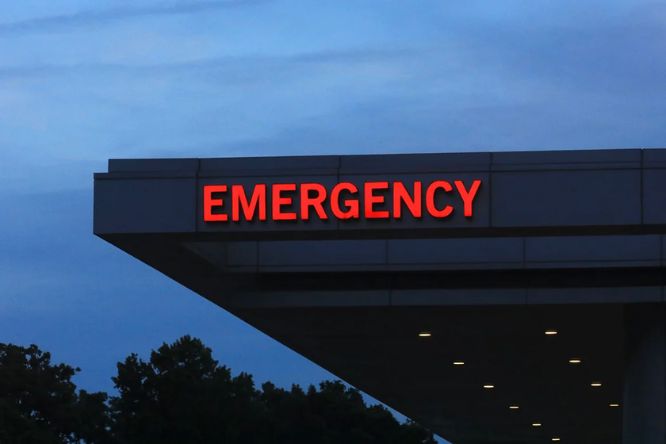The escalation in Emergency Department visits is a topic of concern
- 12 Sep 2023
The escalating trend of substance abuse, mental illness, and an increase in emergency department visits is a cause for concern, with no indications of slowing down
Recent research has revealed a disconcerting pattern in the realm of substance abuse and mental health, specifically a rise in emergency department (ED) visits linked to mental illness induced by substance abuse. According to the Centers for Disease Control and Prevention (CDC), substance use disorders have a significant impact on millions of Americans, with nearly 22 million adults grappling with substance use disorder in 2018 alone (SAMHSA, 2021). Furthermore, mental illness is highly prevalent in this demographic, with up to 46% of individuals with substance use disorder experiencing mental health challenges (National Institute on Drug Abuse, 2020).
In light of the escalating prevalence of substance abuse and its concomitant mental health disorders, it is unsurprising that there has been a corresponding rise in emergency department (ED) visits related to substance abuse. According to the Substance Abuse and Mental Health Services Administration (SAMHSA), there were 1.9 million ED visits in 2017 alone that were attributed to substance abuse-related mental crises, representing an 82% increase since 2005. SAMHSA further reports that substance-related ED visits constituted 10% of all ED visits nationwide, with the highest incidence observed among adolescents aged 12-17, followed by individuals between the ages of 18 and 25.
Disturbingly, the frequency of emergency department visits resulting from substance abuse is exhibiting no indications of decelerating, as per SAMHSA's estimation that substance use disorders may account for 3 million annual ED visits by 2025 (CDC, 2020). These findings underscore the necessity for a comprehensive approach to substance abuse-related mental illness, encompassing preventive strategies to diminish substance use rates, augmented access to quality treatment services for those already afflicted with substance use disorders and mental health issues, as well as follow-up care and monitoring of individuals at risk for relapse or further health complications. In the absence of such interventions, emergency departments will continue to be inundated with substance abuse-related visits.
Hence, it is imperative for emergency departments throughout the United States to collaborate with mental health partners to establish innovative models of care for substance abuse-related mental illnesses. This entails integrating interdisciplinary teams of mental health professionals to address the intricate needs of this population and help reduce the number of substance abuse-related emergency department visits. In the absence of targeted interventions, both short-term and long-term consequences, ranging from escalated acute healthcare costs to significant social harms, are likely to ensue.
The escalation of mental illness associated with substance abuse is becoming increasingly significant
The deleterious long-term consequences of mental illness induced by substance abuse are significant. This not only places a considerable burden on the individual and their families, but also strains the healthcare system as a whole. It is imperative that proactive measures are taken to address mental health disorders related to substance abuse to mitigate their impact on public health in the future.
In summary, substance abuse-related mental illness is an escalating issue with far-reaching implications for individuals, families, and communities. To tackle this problem, we must prioritize substance abuse treatment and the integration of mental health services that can offer early intervention, prevent further harm, and reduce the number of emergency department visits associated with substance abuse-induced mental illness. By doing so, we are taking steps towards providing greater access to quality mental health care for those experiencing substance use disorders and mental illness, while also alleviating the excessive cost and burden on emergency departments caused by this population.
Discover the advantages that Psychiatric Medical Care's inpatient management services can offer to your hospital.
Our hospital partner management services have the capability to assist you:
- Mitigate Risks of Insufficient Inpatient Mental Health Services
- Minimize Readmissions
- Deliver Essential Mental Health Services to Address Community Needs
- Streamline Throughput Time in Busy Emergency Departments
- Furnish Behavioral Health Resources for Hospital and Emergency Department De-escalation
The inpatient management structure offers the following benefits:
- Clinical and Operational Oversight of Behavioral Health Program
- 24/7 On-Call Operational Support
- Adherence to National Standards and Best Practices
- Compliance with Federal Requirements for Key Staff Members
- Management of Core Success Metrics
- Development and Maintenance of Quality Indicators for Key Performance Indicators (KPIs)
- Environment of Care GAP Analysis
- Planning, Execution, and Evaluation of Growth and Outreach
- Oversight of Behavioral Health Policy Processes
- Policy and Procedure GAP Analysis
- Provision of an Inpatient Toolkit with Best Practices and Processes
- Recruitment and Supervision of Key Personnel, including Program Director (RN),
- Medical Director, Social Workers/Therapists, Recreational Therapist
- Growth & Outreach Manager








Lorem ipsum dolor sit amet, consectetur adipiscing elit. Nam viverra euismod odio, gravida pellentesque urna varius vitae, gravida pellentesque urna varius vitae. Lorem ipsum dolor sit amet, consectetur adipiscing elit.
Dec 6, 2022
ReplyLorem ipsum dolor sit amet, consectetur adipiscing elit. Nam viverra euismod odio, gravida pellentesque urna varius vitae, gravida pellentesque urna varius vitae.
Dec 6, 2022
ReplyLorem ipsum dolor sit amet, consectetur adipiscing elit. Nam viverra euismod odio, gravida pellentesque urna varius vitae, gravida pellentesque urna varius vitae.
December 7, 2022
ReplyLorem ipsum dolor sit amet, consectetur adipiscing elit.
December 11, 2022
Lorem ipsum dolor sit amet, consectetur adipiscing elit.
December 13, 2022
Reply